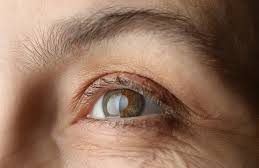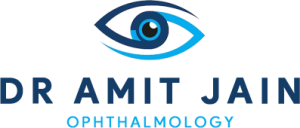
Our eyes are intricate organs, and maintaining their health is crucial for clear vision. While myopia (nearsightedness), cataracts, and glaucoma may seem like separate conditions, research suggests they are interconnected. Understanding this link can help in early detection and better eye care management.
Myopia: More Than Just Blurry Distance Vision
Myopia occurs when the eyeball is elongated or the cornea is too curved, causing light to focus in front of the retina rather than directly on it. This results in difficulty seeing distant objects clearly.
Connection to Cataracts and Glaucoma:
- Individuals with high myopia have an increased risk of developing cataracts earlier than those with normal vision.
- Myopia is also associated with a higher likelihood of glaucoma, a condition that damages the optic nerve due to increased intraocular pressure.
Cataracts: Clouding of the Eye’s Natural Lens
Cataracts develop when proteins in the eye’s lens break down, leading to cloudy vision, glare sensitivity, and difficulty seeing at night. Aging is the most common cause, but high myopia accelerates cataract formation.
Myopia and Cataract Progression:
- High myopia stretches the eye, making the lens more susceptible to changes that lead to cataracts.
- Cataract surgery is often more complex in highly myopic individuals due to structural differences in their eyes.
Glaucoma: The Silent Thief of Sight
Glaucoma is a group of eye conditions that cause optic nerve damage, often due to increased eye pressure. It can lead to irreversible vision loss if not detected early.
Myopia and Glaucoma Risk:
- People with myopia are at a greater risk of developing open-angle glaucoma, the most common form.
- Elongated eyeballs in myopic individuals alter fluid drainage, contributing to increased intraocular pressure and optic nerve damage.
Protecting Your Eye Health
While the link between these conditions highlights the need for proactive eye care, preventive measures can help preserve vision:
Regular Eye Exams: Early detection through comprehensive eye checkups can prevent complications.
Lifestyle Adjustments: A balanced diet, UV protection, and reducing screen time can help maintain eye health.
Proper Myopia Management: Techniques such as orthokeratology, specialized contact lenses, and atropine eye drops may slow myopia progression and reduce associated risks.
Conclusion
Understanding the connection between myopia, cataracts, and glaucoma emphasizes the importance of proactive eye care. If you or a loved one has myopia, regular monitoring is crucial to detect early signs of cataracts or glaucoma. Consulting an eye specialist ensures timely intervention and the best possible vision outcomes.
